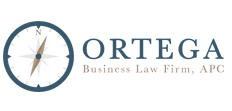Remote Workers/Remote Employment
As the new year continues, so does the new societal norm of remote employment. Many, if not most companies that technically can, work either partially or wholly remotely. Along with staying safe from COVID-19, employees have found that this new hybrid work model provides more flexibility as well as time and cost savings by reducing or eradicating an employee’s office commute. Businesses also benefit financially from the shift as it lowers rental, administrative and operational costs.
As with all new structures, certain challenges accompany this new and growing business model. Many businesses such as banking firms and other corporate firms, historically rely on in person relationships and networking to keep companies moving and employees advancing in their fields.
Many employers are also concerned about maintaining top employee performance as well as potentially losing the collaborative aspects of work. Not only could these issues threaten to affect businesses on a financial level, but they could also impact moral and company culture that existed before the pandemic.
However, with employees adapting to this new model, businesses must remain flexible and alert to their employees’ needs in order to retain a competent, productive and engaged workforce. As employees look to their leaders, managers, and employers for support and organization, experts suggest that employees focus on employee engagement strategies that are tailored to this new work style and are flexible enough to withstand more societal change.
Many companies, specifically in big tech, have, at least for the time being, accepted the new reality and tried to work with it as their employees expect and demand to remain remote. Businesses are realizing that they have to either start to or continue to hire out of office in order to keep their afloat and grow. Open communication between employers and employees with clear work expectations is vital.
Remote and hybrid work are the new norms and likely here to stay. In order to survive, companies have to adapt and come up with creative and flexible solutions to keep their employees safe and happy and business thriving.

